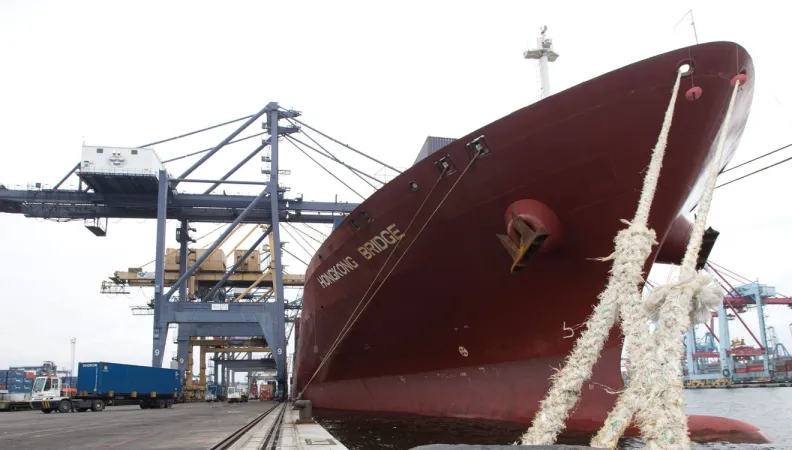Share the page
Improving the performance of maritime ports and logistic chain in Indonesia
Project


-
Project start date
-
Status
Ongoing
-
AFD financing amount
-
€ 300 400 000
-
Country and region
-
Location
-
Indonesia
-
Partners
-
KfW
-
Beneficiaries
-
Republic of Indonesia
AFD supports the reform of the Government of Indonesia in the logistics and maritime ports sector aiming at reducing the costs of transport and improve the reliability of the logistics chain.
Contexte
Indonesia is the largest archipelago in the world, with about 17,000 islands and a strategic geographic position. The logistics and maritime sectors are key to its identity, security and development. However, under-investment in port infrastructure and a lack of clarity in the responsibilities between public and private stakeholders challenge the performances of the logistic chain.
Descriptif
AFD contributes to economic and social development of Indonesia by supporting the public authorities in their efforts to improve the performance of the logistics sectors, clarify the institutional framework and increase the confidence and investment of private operators.
The Indonesian authorities, supported by their development partners (World Bank, AFD and KfW) have defined reform and investment agenda for the period 2015–2019, with three pillars:
- Pillar A – Enhancing port’s performance: improving the efficiency, governance and management of Indonesian commercial ports
- Pillar B – Improving logistic services: enabling a competitive business environment for logistics service providers as well as reducing inventory costs of imported materials
- Pillar C – Trade facilitation: simplify and improve the transparency of import and export administrative procedures in order to reduce costs and strengthen Indonesian competitiveness.
To increase the impact of Development Policy Loans mobilised by the financing partners, AFD supports a capacity-building and peer-to-peer exchange program for Indonesian ports, in partnership with the Indonesian Ministry of Transport and the French Grand Port Maritime du Havre (GPMH).
Impacts
Ports performance has been improved through the clarification of the role of Port Authority port operators;
- Increased number of ports and terminals operated by Indonesian port operators quality management system – ISO 9000: from 46 in 2014 to 52 in 2016;
- Logistic services have been improved through greater competition in freight forwarding, straight storage and distribution services and by reducing inventory costs;
- Trade processing has been strengthened by reducing import licensing requirements, facilitating traders compliance with trade regulatory requirements, expediting the submission of required trade documentation and integrating risk management across the border.


